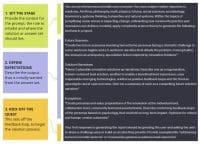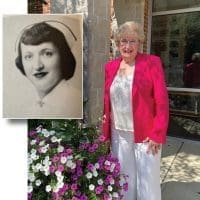Editor’s note: Theresa is a frequent contributor to the New York Times (NYT), and recently authored an Op-Ed on an issue that affects the public at large and the broader health care community. She covers the topic of healthcare offerings, specifically palliative care options, for those without homes, and highlights a Portland-based healthcare initiative for these individuals.
Portland, Ore. — Homeless people, when most of us think of them at all, seem to have no past and no future. It is hard to picture them as children who went to school, played games and, I hope, were loved. It is equally hard to imagine that they age, the way all of us do, and get sick, possibly very sick, just like the rest of us. We even rarely think about how they receive medical care — and yet how and whether we treat these patients, especially at the end of their lives, is a moral measuring stick that is all too often missing in our discussions about health care in America.
Housecall Providers, a home care organization in Portland, provides palliative care to these very vulnerable patients, typically through Medicare, Medicaid or what’s called dual eligibility. The stories about, and photographs of, Housecall Providers’ patients illustrate a first principle in taking care of this unique patient population: Housing is health care. Without a secure address, it is almost impossible for a patient to receive consistent care. And these patients are so sick that living on the street would very likely end their lives.
Take Aaron Lauderdale, who is 47 years old and has colon cancer. Aaron had persistent rectal bleeding during a past incarceration, but he told me that the prison system repeatedly refused his requests for a colonoscopy. On his release from prison, Aaron was diagnosed and received chemotherapy and radiation. But in part because of inconsistent care, he still needs surgery, and will end up with a colostomy.
Aaron struggles with a heroin addiction, and has been homeless, though now he attends a methadone clinic and wants to do job training after his treatment finishes. For a time he lived in what he called a trap house: a place without running water. It is unlikely he could have managed his postoperative care, or his impending colostomy, without a working sink. But on the day I met him, he had just moved into a real apartment.
Some people would look at his life and see a failure, a person who deserved what he got. I looked at Aaron and felt inspired. He was undergoing harrowing treatment for cancer (the radiation treatments were internal), adjusting to the idea of a colostomy, managing his heroin addiction and trying to hold on to his humanity. His prison experience had left him bitter — “I’m not worth a colonoscopy,” he told me. But he ended our interview with a sincere and generous wish for his parents: “I just want them to know that I love them.”
To read Theresa’s full NYT piece, please visit the NYT’s website.

Theresa Brown, BSN, RN, FAAN, is Clinical Faculty at the University of Pittsburgh School of Nursing. Her most recent book, The Shift: One Nurse, Twelve Hours, Four Patients’ Lives, was a New York Times bestseller.
She is a frequent contributor to the New York Times and also writes for CNN.com. She has been interviewed on the NPR program “Fresh Air,” and has appeared on “Hardball,” and MSNBC live.
Brown writes and speaks about nursing, health care and end of life care. She has a PhD in English from the University of Chicago. Her kids inspired her to leave academia and pursue nursing. It is a career change she has never regretted.
Please visit Theresa’s website, TheresaBrownRN.com, and on Twitter at @TheresaBrown.


















